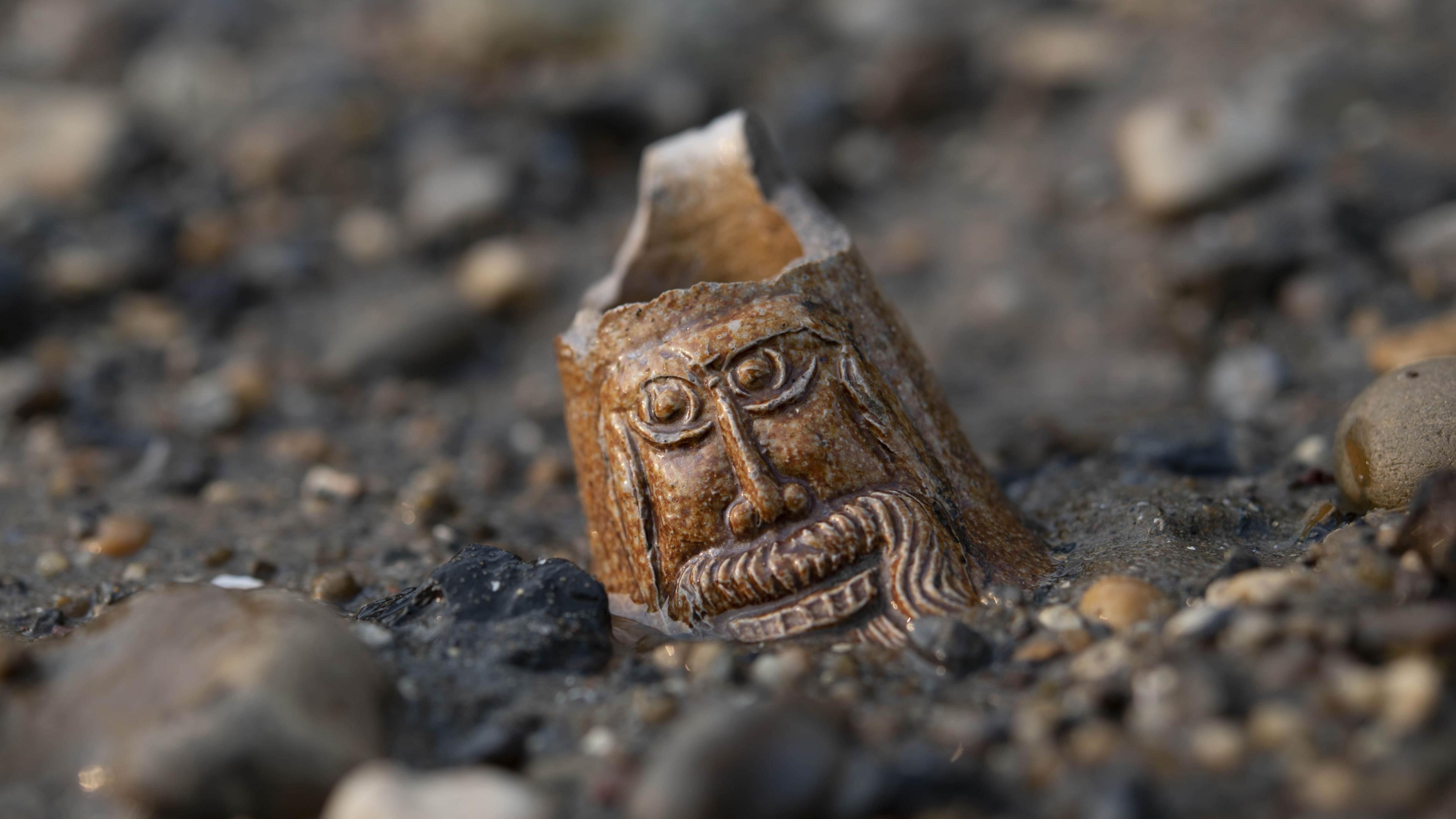River Thames mudlarking permit scheme relaunched
Authorities paused mudlarking licences, as Wendy Hurrell reported in August
- Published
Searching the Thames' riverbed for historical treasures will be possible once again after the Port of London Authority (PLA) reopened applications for permits.
People wishing to go mudlarking, a centuries-old London tradition, will require standard foreshore permits after a boom in popularity of the hobby.
Two years after the scheme was suspended, up to 4,000 permits costing £35 a year will be issued but will not automatically renew, as has been offered previously.
James Trimmer, the PLA’s director of planning and development, said: “Our new scheme will enable people to get permits to search the foreshore safely, whilst continuing to preserve its unique history and heritage.”
Permit holders are required to report any findings to the London Museum
He added: “As owners and custodians of the tidal Thames foreshore, we have a duty to protect its integrity and archaeology for future generations."
There were more than 5,000 licences granted in 2022, up from 200 in 2018-19 which led the PLA to pause the scheme due to "concerns over protection of this unique environment and its historic finds".
Permit holders are required to report any findings at London’s longest archaeological site to the London Museum.
With finds on the foreshore to the west of the Thames Barrier dating back to 4500BC, the PLA says it regulates searches on its own land alongside the Crown Estate's.
Listen to the best of BBC Radio London on Sounds and follow BBC London on Facebook, external, X, external and Instagram, external. Send your story ideas to hello.bbclondon@bbc.co.uk, external
Related topics
- Published16 September 2024
